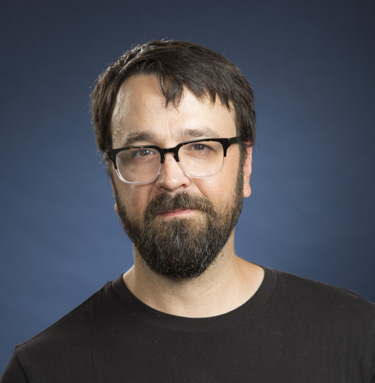Geoff Pfeifer, Worcester Polytechnic Institute – Inclusion and Equity in Student Project Teams
 On Worcester Polytechnic Institute Week: Not everyone likes team projects in college classes.
On Worcester Polytechnic Institute Week: Not everyone likes team projects in college classes.
Geoff Pfeifer, associate teaching professor, discusses one tool that could change that.
Professor Pfeifer’s areas of expertise are in social and political theory, social and political philosophy, and social and global justice. As a part of this, he is involved in a number of projects that think through issues of social justice in the classroom and he researches, writes about, and employs critical pedagogical practices. He teaches courses in philosophy, international and global studies, and for the Great Problems Seminars program. In addition to a number of chapters in edited collections, Professor Pfeifer’s work can be found in journals such as Philosophy and Social Criticism, Globalizations, Human Studies, The European Legacy, Crisis and Critique, Continental Thought and Theory, and Current Perspectives in Social Theory. He is also the Co-editor (with West Gurley) of Phenomenology and the Political (Rowman and Littlefield, 2016) and author of The New Materialism: Althusser, Badiou, and Zizek (Routledge, 2015).
Professor Pfeifer is also co-editor (with Taine Duncan) of Philosophy in the Contemporary World: An International Journal and Book Reviews Editor for Human Studies: A Journal for Philosophy and Social Science.
Inclusion and Equity in Student Project Teams
Group-based learning has long been shown to be an effective way of developing student skills in a myriad of areas, but it’s not without its limitations. Implicit bias and stereotyping can impact how tasks are divided on teams and whose ideas are taken seriously. These processes of intellectual marginalization negatively impact student learning and experience.
Research from a recent initiative offers one solution as to how students can learn about, address, and reduce these problems in their teams. At a private university, students were asked to complete asset maps before beginning work with their teams, where they would identify and share their own strengths and desired areas of growth before dividing work based on skill, interest, and experience.
In doing so, students not only realized their own talents and potential but those of their peers, reducing stereotypes and leading to a more successful and equitable project experience.
One student stated “I surprised myself with what I may be able to offer in a team project,” whose asset chart helped her counteract what she perceived to be weaknesses with her strengths and ways to contribute to her team.
The study also acknowledged that while it can be difficult for privileged students to understand the problem of stereotyping and bias, the discussion of these issues and use of asset maps helped to address and reduce this challenge. Upon the conclusion of his project, one student shared, “As a white-passing male, I now feel obligated to learn more about the systems and institutions that marginalize others around me and what I can do to help.”
Change doesn’t happen overnight, so this work is seen as a first step in the longer process of coming to grips with and ultimately overcoming ingrained stereotypes and biases inherent in team environments.



As you say, team work has both real benefits and challenges, so I appreciate this approach to addressing some of the challenges. Do you have a resource on asset-mapping that you’d recommend? I looked on line, couldn’t find anything great, and a lot of things that use that terminology address financial assets.
Very interesting. Where can I find an example of an asset mapping tool for use with individuals/students?
I’ve been looking, and if I find anything useful, I’ll let you know, but so far it’s been a bust.
Hi Greg and Sheila-
Thanks for your comments and interest and sorry for my slow reply! My collaborator in this work, Lisa Stoddard, and I have a couple of resources that might be useful to you. One is a conference paper that has an example of the asset maps that we use. You can find this here:
https://www.asee.org/public/conferences/113/papers/22206/view
And then we have an older version of a handbook we created for other faculty who are using our materials in their classes available here. The newest version of these tools have changed somewhat but this has all of the tools (including asset maps) that you can download. Link is here:
https://digitalcommons.wpi.edu/gps-research/14/
I hope this helps and feel free to reach out to me if you have further questions!
Geoff